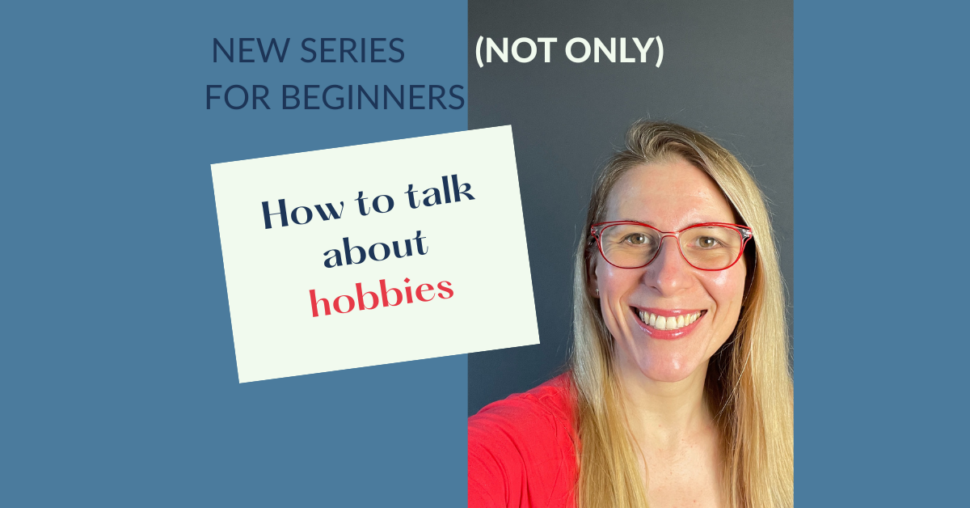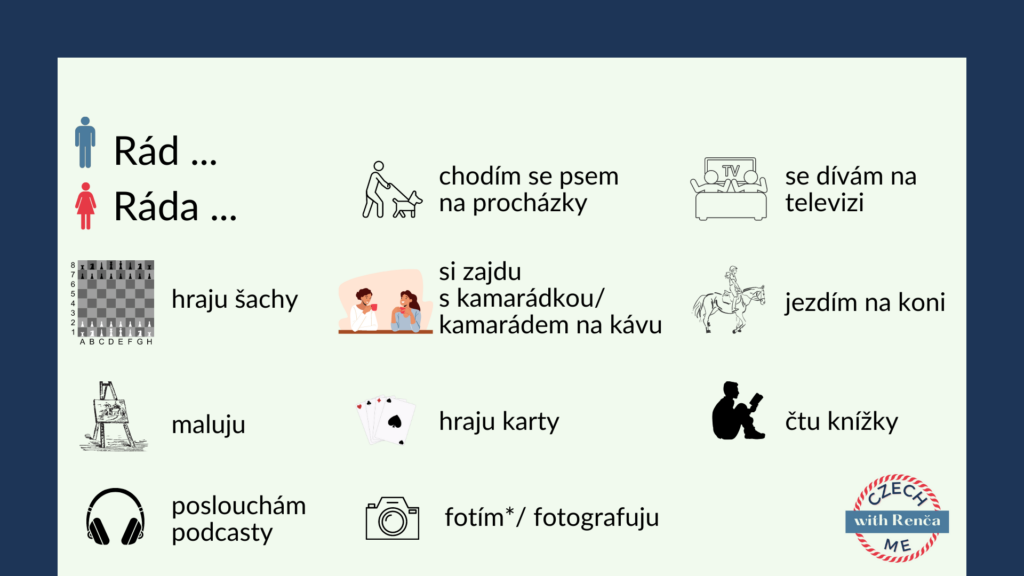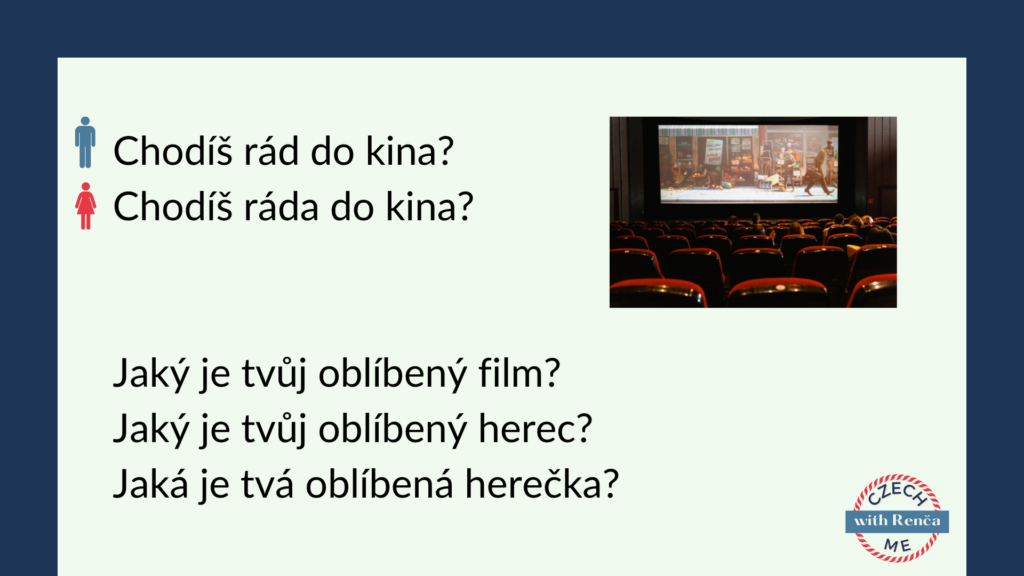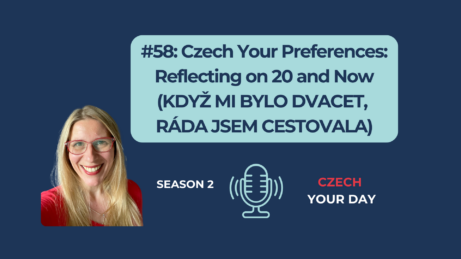How to ask people about their hobbies in Czech?

Being able to ask people in Czech what they are interested in is a key skill to have a successful conversation. In this article I will show you multiple ways how you can not only ask people about hobbies and interests, but also how to answer if other people ask you.
1. Jaké máte koníčky?/Jaké máš koníčky?/Jaký* máš koníčky?
= What are your hobbies? (literally: What hobbies do you have?)
What’s the difference between them? It depends on who you are asking.
Jaké máte koníčky?
- either you are asking a group of people or you are addressing one person you want to show your respect to (it can be eg. your boss, a doctor etc. – someone superior)
Jaké máš koníčky?
- you will use this question when talking to a friend or eg. a family member
Jaký* máš koníčky?
- this version is the least formal – it is in Common Czech (jaký*)
- don’t use it in formal situations
How can you answer?
You can say for example: ráda cestuju (= I like travelling – female)
rád(if you are a man)/ráda (if you are a woman) + the verb in 1st person singular
rád(a) lyžuju (I like skiing)
rád(a) vařím (I like cooking)
rád(a) poslouchám podcasty (I like listening to podcasts)
rád(a) chodím do kina (I like going to the cinema)
rád(a) hraju šachy (I like playing chess)
rád(a) maluju (I like painting)
rád(a) jezdím na kole (I like riding a bike)
2. Co vás baví?/Co vás zajímá?/Co tě baví?/Co tě zajímá?
= What do you enjoy doing? / What are you interested in?
Co vás baví?/Co vás zajímá?
- you are either talking to a group of people or to someone you want to show respect
- where can you find it in the sentence? the pronoun vás (you – plural in accusative case) is a clear sign
Co tě baví?/Co tě zajímá?
- informal
- use it when you talk to your friends or acquaintances
- how can you tell it’s informal? the pronoun tě (you – singular in accusative case)
How can you answer?
You can either use the structure rád(a) + the verb in 1st person singular
or
you can use this: mám ráda cestování (= I like travelling – female)
mám rád (if you are a man)/mám ráda (if you are a woman) + a noun in accusative case
mám rád(a) lyžování (= I like skiing)
mám rád(a) plavání (= I like swimming)
mám rád(a) komedie/horory/akční filmy (= I like comedies/horror movies/action films)
mám rád(a) knížky o vesmíru (= I like books about space)
mám rád(a) filmy Quentina Tarantina (= I like Quentin Tarantino’s films)
mám rád(a) dokumentární filmy (= I like documentaries)
3. Co rád(a) děláte?/ Co rád(a) děláš?
= What do you like doing?
Co rád(a) děláte?
- formal
- you are asking one person whom you want to show respect
- Co rád děláte? – you are asking a man
- Co ráda děláte? – you are asking a woman
Co rád(a) děláš?
- informal
- use it with your friends or in informal situations
- Co rád děláš? – you are asking a man
- Co ráda děláš? – you are asking a woman
How can you answer?
You can use the structure with rád(a) + verb in 1st person singular I talk about above.
eg. Ráda poslouchám španělské písničky. (= I like listening to Spanish songs)
I hope it makes more sense to you now.
If you want more practice, you can watch my video on YouTube that is all about hobbies (different questions and different ways how to answer).
If you aren’t sure how to say in Czech the activities or hobbies you are interested in, leave a comment down below. I will help you.










